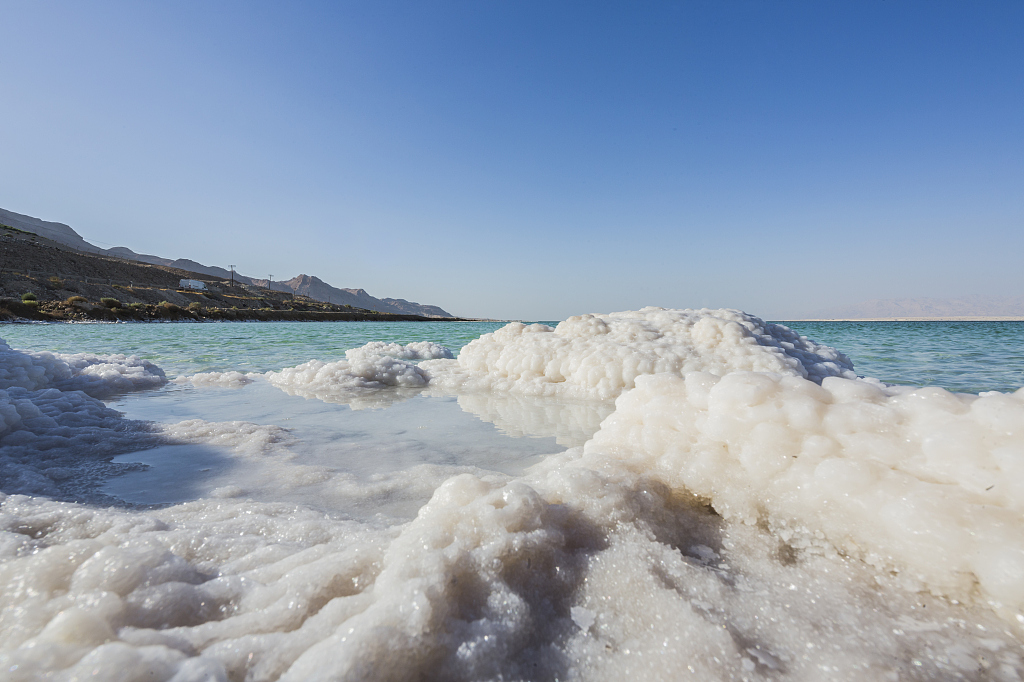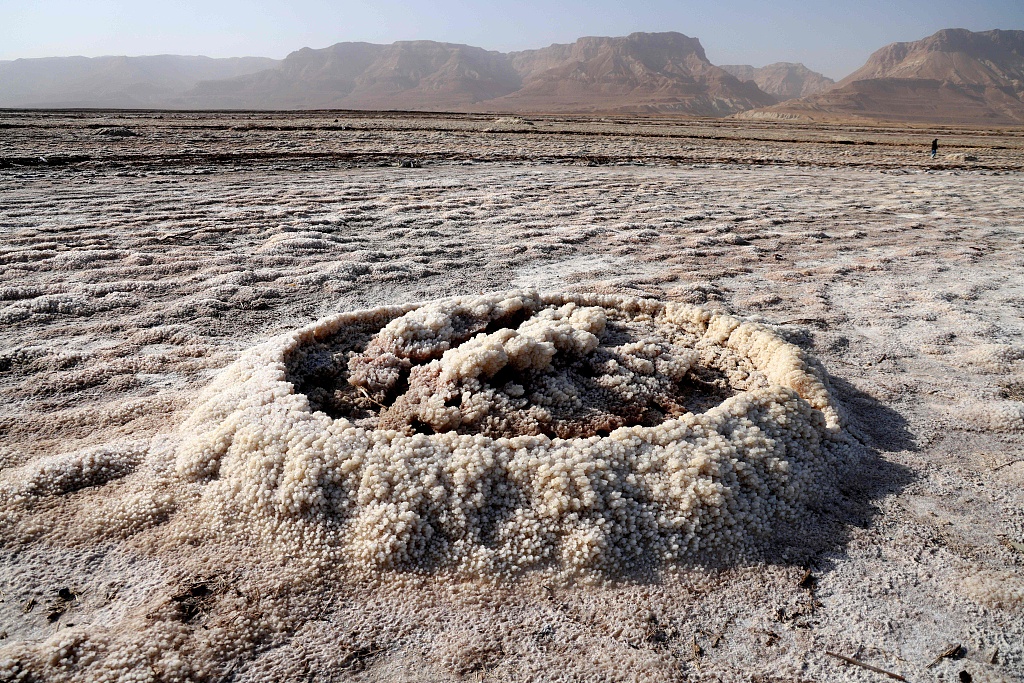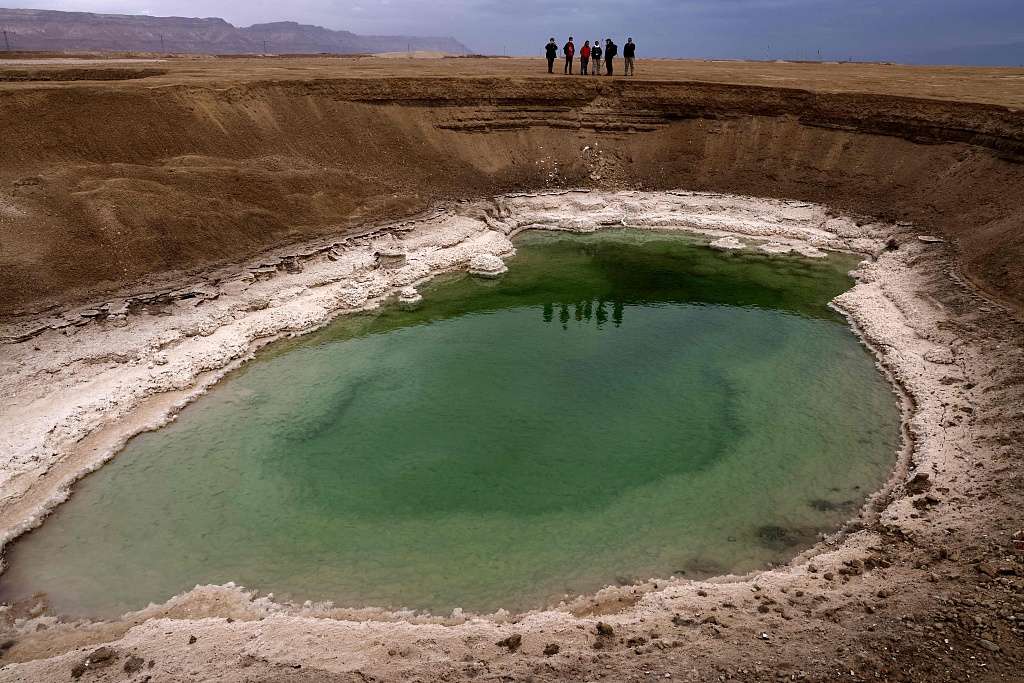Expectations are running high as world leaders gather for 2021 United Nations Climate Change Conference (COP26) in Glasgow from October 31 to November 12. While extreme weather events, as a consequence of climate change, take the limelight, one cannot ignore the plight of the lakes that are drying up.
In focus today is one of the saltiest water bodies in the world, bordered by Jordan and Israel in southwestern Asia – the Dead Sea. Despite having "sea" in its name, it is actually a lake, but aptly called "dead" as extremely high levels of salinity make life in it impossible for most plants and animals. But this seemingly deadly lake, which receives nearly all its water from Jordan River in the north, is drying up.

The extremely high salinity of Dead Sea makes the environment harsh for most of the plants and animals. /VCG
The extremely high salinity of Dead Sea makes the environment harsh for most of the plants and animals. /VCG
Since 1960s, the Dead Sea has lost one third of its surface area, and the water recedes about a meter every year, according to a report released by Israel's Ministry of Environmental Protection in 2014. The report, based on 10 years of research and data collection, attributes this decline with evaporation accelerated by global warming and climate change as well as human activities, such as diversion of water from Jordan River and mineral extraction.

The patterns formed by crystalized minerals in the southern part of the Dead Sea, a dried-up sea stretch which exposed and created a salt plain. /CFP
The patterns formed by crystalized minerals in the southern part of the Dead Sea, a dried-up sea stretch which exposed and created a salt plain. /CFP
But the Dead Sea is not alone. Other lakes around the world including Lake Poopo in west-central Bolivia and Lake Chad in the Sahelian zone of west-central Africa are too decrying rising temperatures.
Catherine O' Reilly, an ecologist from Illinois State University and co-leader of a worldwide lake survey by 64 scientists, told the National Geographic that climate change was warming many lakes faster than it was warming the oceans and the air, and the heat which accelerates evaporation was intensifying the receding process.

Hikers walk next to sinkholes across a dried-up sea area which exposed and created a salt plain in the southern part of the Dead Sea. /CFP
Hikers walk next to sinkholes across a dried-up sea area which exposed and created a salt plain in the southern part of the Dead Sea. /CFP
UN Secretary-General Antonio Guterres said on August 9 that all nations need to join the net zero emissions coalition and reinforce their promises on slowing down and reversing global heating.
At the same time, COP26 is aiming to accelerate action towards the goals of the Paris Agreement and the UN Framework Convention on Climate Change. During the summit, countries would bring forward national plans and set out their own emissions-reduction targets – known as Nationally Determined Contributions, which is one of the joint efforts to deal with global warming.
(Cover image via CFP, designed by CGTN's Yu Peng)
(If you want to contribute and have specific expertise, please contact us at nature@cgtn.com.)

